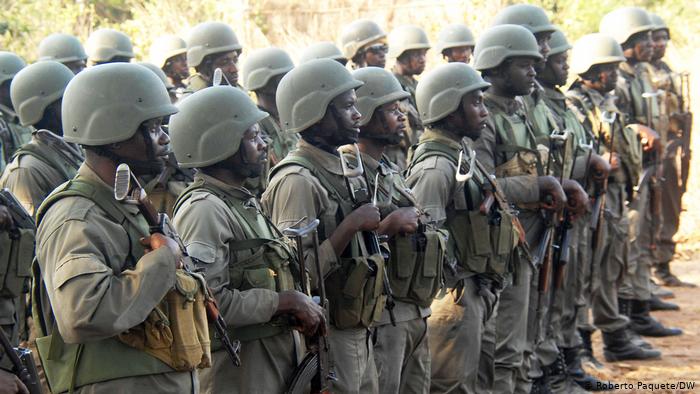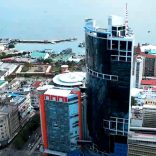Bank of Mozambique holds international symposium to mark its 50th anniversary
Cabo Delgado: Researchers look into the “secrecy” of defence and security expenditure

File photo: DW
Analysts have denounced a lack of transparency in expenditure on combating terrorism in Cabo Delgado, despite the law regulating public finances requiring that government expenditures must be described in the State Budget.
Researchers and analysts meeting in Maputo this Tuesday (August 10) were unanimous in declaring that there is no transparency in the Mozambican state’s expenditure on combating terrorism in Cabo Delgado.
The webinar, promoted by the Centre for Public Integrity (CIP), saw experts expressing concern about “secretiveness” at the Ministry of Defence.
Aldemiro Bande understands the need for confidentiality in matters of defence and security, but suggests that public investment in this sector should be subject to external control by supervisory bodies, such as Parliament and the Court of Auditors.
“It is important to safeguard transparency for citizens, who are the true owners of what is used to purchase military and non-military goods and services in the defence and security sectors,” Bande recalls
Treated differently
According to a newly released CIP report, the war in Cabo Delgado had, until the end of 2020, cost the Mozambican state 64.77 billion meticais, the equivalent of one billion US dollars .
Official spending in the defence and security and public order sectors has jumped three-fold since 2015, from 21 billion meticais [US$329 million] to 62 billion meticais [US$974 million] per year . reads the report.
[Read, download the Full CIP report “External Control of Defence and Security Expenditure: How much does the State spend on the war in Cabo Delgado and how does it spend it?” HERE]
Also according to the CIP, this amount does not include 10 billion meticais [US$157 million] which CIP estimates has been spent on private military companies.
Aldemiro Bande believes that the government uses funds “extra budget” to invest in the war, with secrecy favouring the withdrawal of “revenues from public companies, for example, to finance the acquisition of arms”.
Public budget specialist Leila Constantino says that the defence and security and public order sectors are apparently treated differently from the economic and social sectors, “as if this sector had some kind of procedure of its own that at some point limits accountability”.
Constantino recalls that there is one single law governing the state’s financial administration system and regulating public finances, and this establishes that, “all expenses to be incurred in a given year must be written in the State Budget”.
Legal limitations?
Professor Emílio Zeca, a specialist in state security, says the lack of accountability results from the limitations of the country’s legal framework, especially the Constitution of the Republic.
Zeca says that the Defence and Security Forces (FDS) can only render public accounts to the Mozambican parliament. Even so, this will take place outside of a plenary session, via a working commission. Therefore, it would be up to the parliamentarians participating in this commission to disseminate the information.
“It is from this that the problem that ties us up arises,” he says..
Watch the full CIP webinar.














Leave a Reply
Be the First to Comment!
You must be logged in to post a comment.
You must be logged in to post a comment.